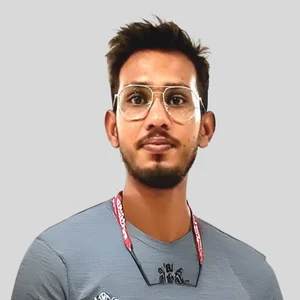

Hire The Best Digital Communications Tutor
Top Tutors, Top Grades. Without The Stress!
10,000+ Happy Students From Various Universities
Choose MEB. Choose Peace Of Mind!
How Much For Private 1:1 Tutoring & Hw Help?
Private 1:1 Tutors Cost $20 – 35 per hour* on average. HW Help cost depends mostly on the effort**.
Digital Communications Online Tutoring & Homework Help
What is Digital Communications?
Digital communications is the transmission of information using discrete (usually binary) signals over a channel. It relies on devices like ADC (Analog‑to‑Digital Converter) to turn voice or sensors into bitstreams, applies error correction to ensure integrity, and is found in Wi‑Fi, mobile calls and streaming TV.
Also called data communications, digital signalling or digital transmission in many texts and industry docs.
Key areas include source coding (data compression), channel coding (error detection and correction), modulation methods such as QAM (Quadrature Amplitude Modulation), multiplexing, digital signal processing (DSP, Digital Signal Processing), network protocols, and security. Practical studies also cover filter design, sampling theory, bit error rate analysis and real‑time systems for IoT applications.
Beside the 1837 electric telegraph’s on‑off keying, PCM (Pulse‑Code Modulation) emerged in the 1930s. Claude Shannon’s 1948 work founded information theory. The 1960s saw early digital computers linking via modems. Digital telephony grew in the 1970s. 1980s brought satellite links, 1990s unleashed the internet. 2000s introduced 3G, 4G and now 5G – it’s a rapidly expanding feild.
How can MEB help you with Digital Communications?
Do you want to learn Digital Communications? MEB gives you one‑on‑one online tutoring with an expert tutor. If you are a school, college or university student and want top grades on assignments, lab reports, live tests, projects, essays or dissertations, try our 24/7 instant online Digital Communications homework help. We prefer WhatsApp chat, but if you do not use it, please email us at meb@myengineeringbuddy.com
Our services are for every student, but most of our learners come from the USA, Canada, the UK, the Gulf, Europe and Australia.
Many students ask for help because some courses are hard, there are too many assignments, questions can be tricky, or they have health or personal issues. Others work part time, miss classes or find it hard to keep up with their professor’s pace.
If you are a parent and your ward is finding this subject tough, contact us today. Our tutors will help your ward do well on exams and homework. Your ward will thank you!
MEB also offers help in more than 1000 other subjects. Our tutors are experts who make learning easier and less stressful.
DISCLAIMER: OUR SERVICES AIM TO PROVIDE PERSONALIZED ACADEMIC GUIDANCE, HELPING STUDENTS UNDERSTAND CONCEPTS AND IMPROVE SKILLS. MATERIALS PROVIDED ARE FOR REFERENCE AND LEARNING PURPOSES ONLY. MISUSING THEM FOR ACADEMIC DISHONESTY OR VIOLATIONS OF INTEGRITY POLICIES IS STRONGLY DISCOURAGED. READ OUR HONOR CODE AND ACADEMIC INTEGRITY POLICY TO CURB DISHONEST BEHAVIOUR.
What is so special about Digital Communications?
Digital Communications stands out by turning messages into streams of 0s and 1s, making data easy to store, process and secure. Unlike analog methods, it uses clear on/off signals that resist noise and fading. Its unique mix of math, coding and electronics lets students design reliable systems for phones, networks and satellites while learning modern digital techniques.
Compared to other Electrical Engineering courses, Digital Communications offers strong noise immunity and efficient use of bandwidth through compression and error correction. It pairs well with software tools, encouraging flexible simulations. On the flip side, it can involve steep math, algorithmic complexity and higher initial cost for hardware and coding platforms. Still, its real‑world applications make it highly rewarding to study.
What are the career opportunities in Digital Communications?
After completing Digital Communications, students can join a master’s in communication engineering or signal processing. Many earn micro‑credentials in 5G/6G, IoT or software‑defined radio. A PhD leads to research in advanced coding, MIMO systems or quantum communications.
Jobs include RF engineer, wireless network engineer, signal processing engineer or system designer. Nature of work involves designing and testing transmitters, developing modulation schemes, optimizing networks and fixing signal issues. Many roles now use AI to boost performance.
We study Digital Communications to learn how data moves over wires and air for phones, internet and satellites. Preparing for exams like GATE sharpens skills in modulation, coding and error correction. This strong theory is essential for modern networks.
Digital Communications powers 5G, Wi‑Fi, Bluetooth and IoT. It provides high data speeds, reliable links and efficient spectrum use. Error correction cuts noise and security features protect data. New tools apply machine learning for smarter signal processing.
How to learn Digital Communications?
Start by building a clear foundation in signals and systems. Step 1: review basic math (algebra, probability, transforms). Step 2: study core topics like modulation, sampling, and coding one by one. Step 3: work through simple examples in each chapter, then move to challenging problems. Step 4: implement key ideas in MATLAB or Python to see signals in action. Step 5: join a study group or online forum to discuss doubts and share resources regularly.
Digital Communications can look tough because it mixes math, theory, and practical skills. If you follow a step‑by‑step approach, practice problems often, and tie concepts to real examples (like modem signals), you’ll find it becomes logical and even rewarding rather than overwhelming.
Many students succeed with self‑study using textbooks and online courses, especially if you’re disciplined with a study plan. A tutor isn’t always needed, but one can speed up your progress, give instant feedback, clarify tricky points, and keep you motivated when topics get dense.
MEB offers experienced tutors who specialize in Electrical Engineering and Digital Communications. You get one‑on‑one online sessions any time, custom lesson plans, problem‑solving support, and assignment help. We tailor explanations to your pace and focus on the areas you find hardest, all at an affordable rate.
Learning or preparing for a full semester course typically takes about 12–16 weeks, studying 5–8 hours per week. If you’re cramming for an exam, plan 4–6 weeks of targeted study at 8–10 hours weekly. Adjust based on your background, and use ongoing practice to gauge how much extra review you need.
YouTube channels like NPTEL, AllAboutEE and Khan Academy offer clear video lessons. Websites such as MIT OpenCourseWare (ocw.mit.edu), Coursera and edX host free courses. Key textbooks include Proakis’s “Digital Communications,” Haykin’s “Communication Systems,” Sklar’s “Digital Communication: Fundamentals and Applications,” and Couch’s “Digital and Analog Communications.” Practice MATLAB tutorials on MathWorks and join forums like Electronics Stack Exchange for tips, sample problems, and peer support.
College students, parents and tutors from the USA, Canada, UK, Gulf and beyond: if you need online 1:1 24/7 tutoring or assignment help, our MEB tutors are here to guide you at an affordable fee.




























